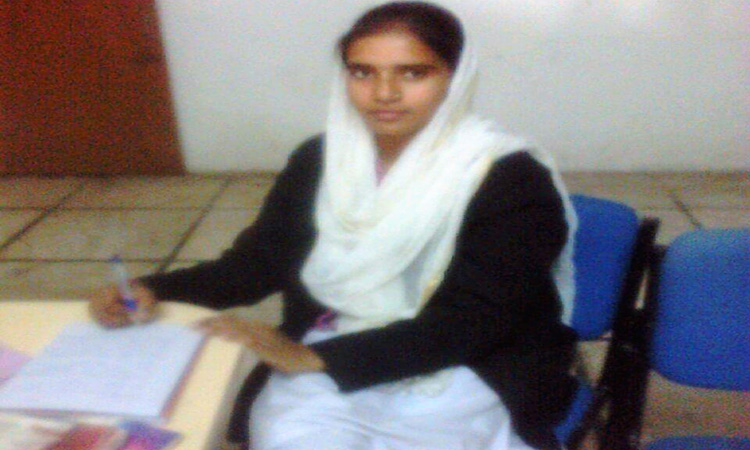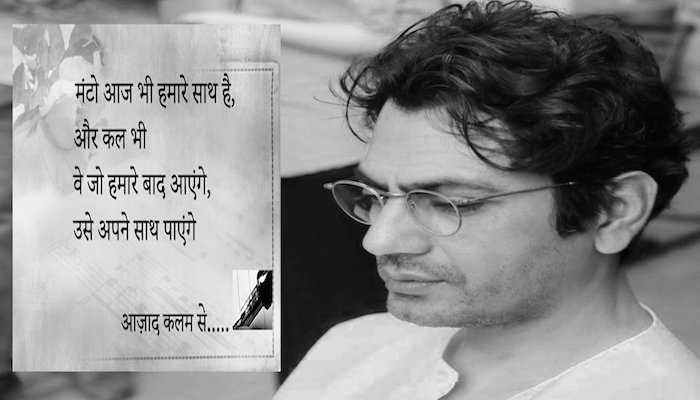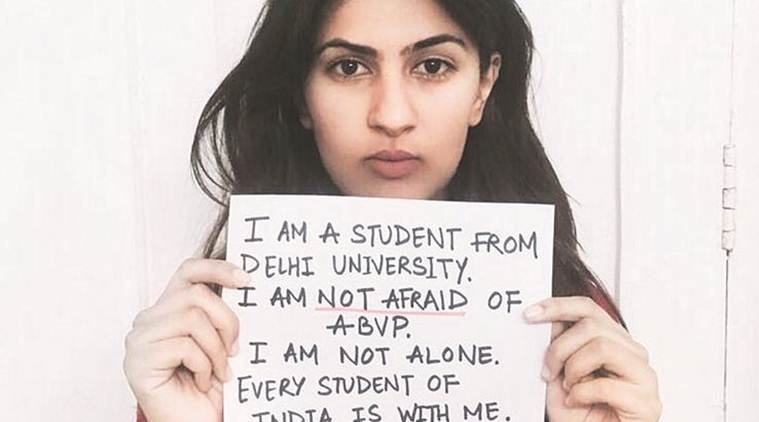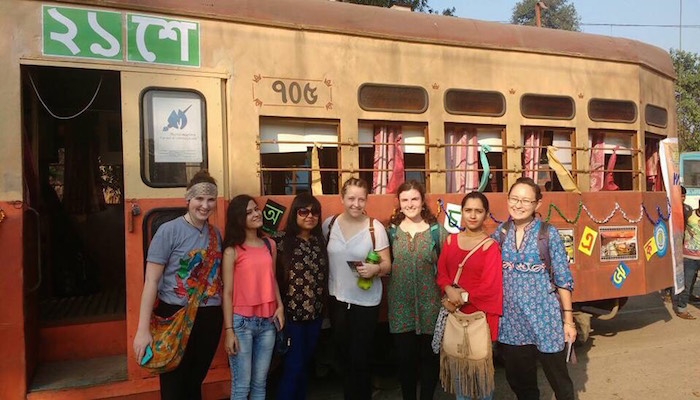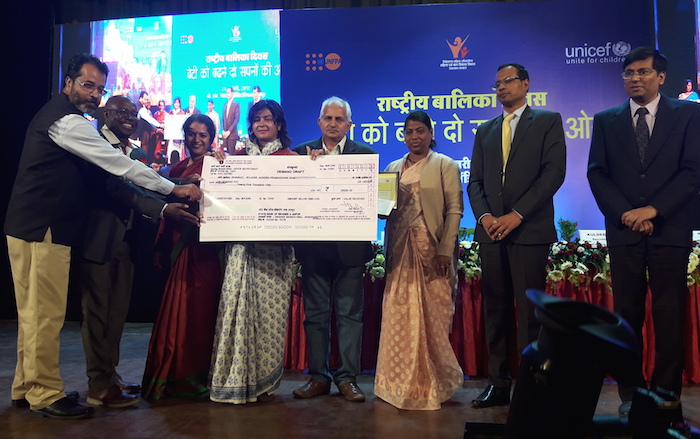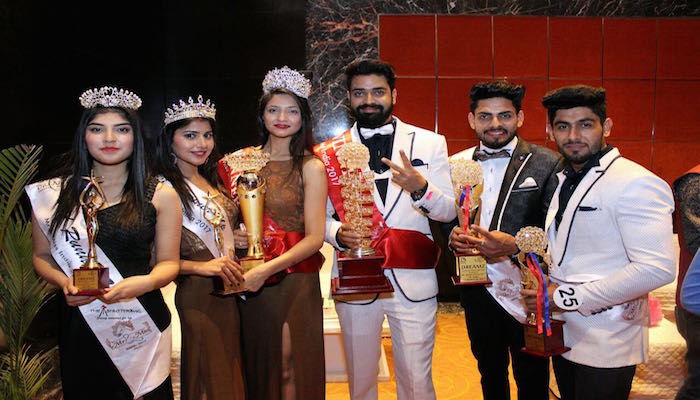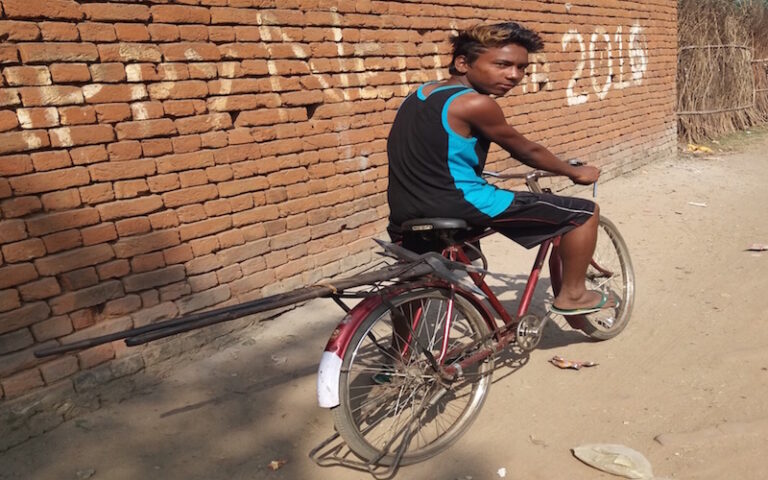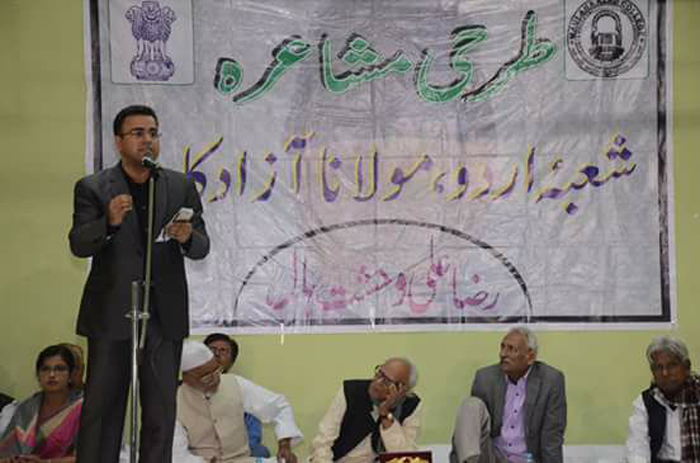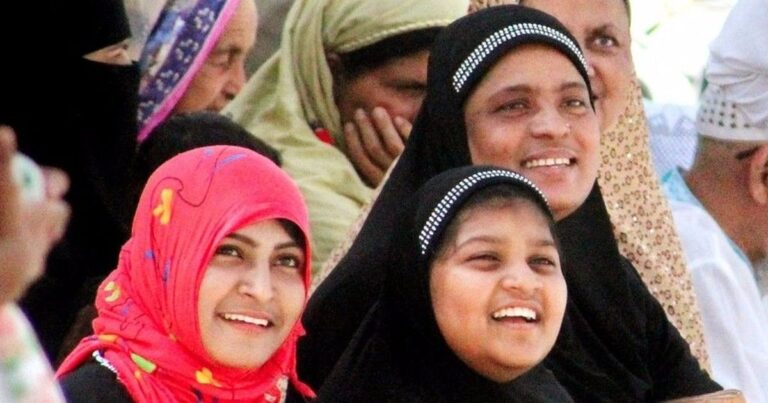Kolkata: As a young girl, she used to roll beedis at home, just like any woman of Ahiron village of Murshidabad do for a living. A fleeting glance, wouldn’t make you realise the change that she bringing about in her hamlet. For the petite, young girl, in her early 20s would seem like just another Indian youth. But then, the moment she speaks, you will understand, that she really has the nerves of steel.
“I am just an ordinary girl. But I have set some goals for myself. I have also set a few standards, that I refuse to compromise on. I choose to ignore the criticism that I am subjected to, for choosing a path, that not many don’t tread on,” she says to eNewsroom.
Meet Sujeda Khatun, a fourth year BA LLB student at the Aligarh Muslim University, Murshidabad campus. She is the first female graduate for Arihon, a feat that she has achieved after facing a lot of flak from the society. However, the young girl feels that the journey would have been a lot more difficult if her parents had not been the winds beneath her wings. “It was my mothers unconditional support and also of my father, which made it possible for me to study this far. In our society, women are expected to roll beedis, cook food and take care of children. A woman, has no other identity, barring that of being a daughter, sister, wife and mother. I was disturbed by the stereotype identity of women, even as a child. Guess, that somewhere gave me the courage get empowered by education,” she recalled.
Journey of a Beedi Roller
On being asked, what was the turning point for her, to that she revealed, that it was “failure is the stepping stone for success” for her. She revealed, “Well, I failed my standard IX examination. It was so embarrassing for me. I then resolved to prove myself. I put in all my might to do excellent results. Today,I feel immense pride, when I say, that I have been supporting my entire educational journey through scholarships for meritorious students.”
Walking on a path, that none had dared to, Sujeda, has been bringing about a revolution of different sort and she is unapologetic about it. Being a law student, she is leaving no stones unturned to make women get justice.
“My maternal aunt, was subjected to domestic violence by her husband. One day, when her husband had beaten her blue and black, she told me to help her get freedom from him. I don’t know how I mustered up the courage to go against my mother, my pillar of support, and got my uncle behind the bar. Despite, people, slandering my character, demonising me for this move, I still believe it was the best thing that I ever did,” she narrated.
She then added, “Allah made us as equal partners but gave us different duties. However, the patriarchal society ridicules women despite them delivering their best. This hurt me a lot. Seeing my elder sister and my friends suffer after marriage, made my resolve stronger to be an independent woman.”
Sujeda, who also runs and educational guidance centre – Educare Guide Centre, in Arihon. Through this centre she plays a vital role in motivating people to let their daughters study and work. She also runs a self help group cluster, where at the moment 12 work together for the cause of women empowerment. Speaking of the obstacles that she faces till date, she said, “Most families don’t want to educate girls to become economically independent. Many presume that working girls will give their earnings to their in-laws and not to their parents. My question is why can’t a working woman support her father’s family?”
She then added, “Precisely, for that reason, my father who had been supportive till now, is no longer that accommodating. But I have made up my mind to do my masters in law.” Sujeda, who has just returned from New Delhi after spending a month there as a scholar with the Quill Foundation, when asked if her parent were opposed to her going out of station, she revealed, “I now just inform them about what I am doing. I have ceased taking permission.”
The former beedi roller, who is now a fire brand girl, often taunted by her relatives and neighbours, for venturing out unchaperoned or for not getting married early, maintained that education is the only way of bringing about a social change. “I have decided to be an educator, for that is the only way to bring about a social change, where women are treated like equal halves,” she said. Apart from being a Quill scholar, she has recently been awarded with the Krishna Memorial Award for Women Educationists, Students & Caregivers.


